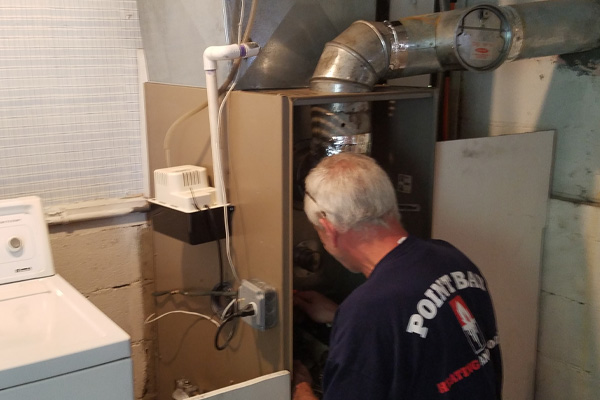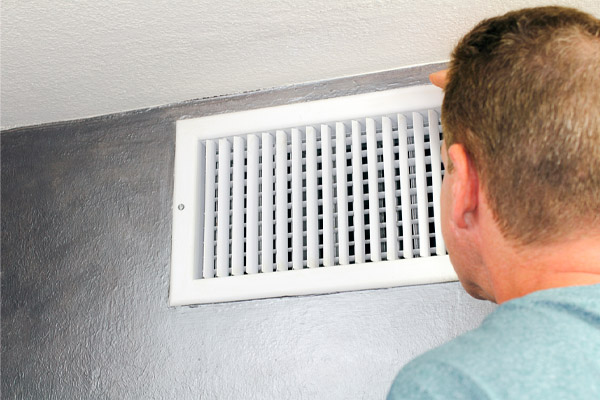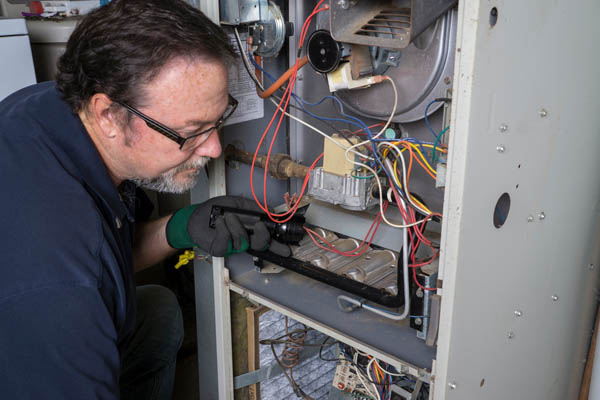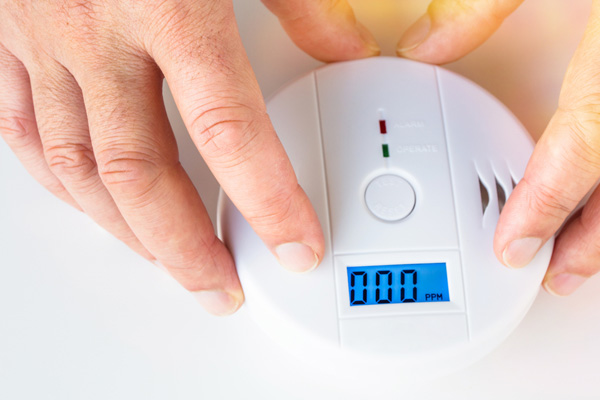5 Things To Check When Buying A House With An Old HVAC Unit

Buying a house is a daunting task. On one hand, it’s thrilling to search for a new place to be your home. However, you want to ensure that you purchase a solid piece of property that’s in good condition. This way, you can live in it without a lot of issues. One important aspect to consider before purchasing is buying a house with an old HVAC.
5 Things To Check On The HVAC System When Buying A New Home
Contents
The following are what you need to check regarding the heating and cooling system when you are buying a new home:
Assess The HVAC Equipment

Inspect the HVAC equipment when doing a house walkthrough. Look for signs of cracks, rust, water stains, and dents. Switch on the air conditioner and furnace so you can listen for any odd noises, such as hissing or clanging.
Check the unit’s age as well. Most HVAC systems have a lifespan of 15 years before they need to be replaced, with some lasting for 20 years or more with proper maintenance. Ask if they can provide the units’ maintenance records. If the system is over 15 years, consider the heating or cooling replacement cost and how it will fit in your budget. You can also consult the HVAC technicians at Point Bay Fuel for a professional assessment.
Check The HVAC Ductwork
Like the heating and cooling system, HVAC ductwork won’t last forever. Therefore, inspect the ductwork where possible. If you can go up the attic or in a crawlspace, look for gaps in the ductwork runs. Check all vents to ensure the duct is firmly connected as well.
Check the ducts’ inside to see if there is dust buildup or signs of mold growth. Dust buildup is a sign of neglect, but it can be removed. On the other hand, mold is due to excess moisture in the duct, which can cause potential failure.
Ask About Insulation

It is also essential to know the amount of insulation the house has and when it was installed. An inadequate amount of insulation means that the house is inefficient and will likely have higher energy bills. Insulation installed several years ago has likely settled, so the house may require additional insulation. If the real estate agent doesn’t know this information, ask them to relay the question to the seller.
Take your time to assess how comfortable the home feels while walking through the house. Check if you feel drafts as you walk past doors or windows. There might be rooms that feel colder or hotter than others. Assess if the air feels musty or stale as well.
Consider The Air Conditioner Refrigerant
Check the type of refrigerant the cooling system uses. Older ones may use R-22, which was a common refrigerant for some time. However, the EPA has banned its use in new cooling systems. R22 has been completely banned since 2020. Therefore, R22 will be harder to find and more expensive to purchase should the unit require a top-off. You need to retrofit the existing system for a new refrigerant or replace it with a new one.
Weigh The Cost Of HVAC Replacement & Ongoing Energy Costs
 If you buy a home and its HVAC system needs to be replaced, do you have the financial reserves to deal with it? Buying a home with an old system means you are at risk of this scenario happening.
If you buy a home and its HVAC system needs to be replaced, do you have the financial reserves to deal with it? Buying a home with an old system means you are at risk of this scenario happening.
Moreover, consider how much money the system needs to operate. The homeowner should have no problem showing their energy bills for at least the past two years. Unusually high energy bills often mean a poorly-maintained HVAC system. It could also be on its last legs.
These tips will help you decide if the HVAC system should hold you back from purchasing the house. You can also consult your local, trusted HVAC company to provide you with a professional assessment during the homebuying process. Set an appointment and call Point Bay Fuel today.
Additional Items To Consider
Listed below are additional aspects to check around the home in connection to its HVAC system:
Room to Room

Be attentive to the temperature and moisture level from room to room. Check if there are any drastic changes in particular areas. A few common culprits behind uneven temperatures in homes are blocked vents, leaky or blocked air ducts, poor insulation, wrong air conditioner or furnace size, or an older HVAC unit.
Vent Flow

Find the intake and outflow vents around the home. Check if air constantly flows through them or if the force of air changes from vent to vent or in various rooms. Several reasons for low airflow through a few or all vents are air duct leaks, clogged or dirty ductwork, dirty or blocked air filters, restrictive HVAC filters for your unit, overly large ducts, or vents that are too small.
Zoning
Check to see if the home has multiple heating and cooling zones. If there aren’t, see if the current system is capable of HVAC zoning so you can accommodate the setup should you choose to in the future. Ask your realtor about this information.
HVAC System Age
As mentioned above, find out how old the HVAC system is and when the unit was installed. Research the specific model, especially how long these HVAC units usually last. In some cases, it might seem like you have an old system, but it actually still has a few years left in it. Air conditioning systems typically have a 15-year lifespan, while furnaces, on average, need to be replaced when they are 15 to 20 years old.
History of Maintenance

Ask the current homeowner to give you as much tune-up and repair history as possible. This information helps you determine the maintenance interval you need to do and how well-maintained the system is. Older HVAC units that haven’t received proper maintenance are more likely to break down and usually need replacing earlier than well-maintained ones.
Warranties and Service Plans
Check if the HVAC system has any active warranties or service plans. More importantly, determine if they can be transferred to you or if you can use them as long as they are in place. Inquire about this essential information to the current homeowner. The homeowner can include a one-year home warranty on the HVAC system and other appliances in case they stop working.
Thermostats & Detectors

House inspections include checking the thermostat and carbon monoxide/smoke detectors. However, it is also recommended that you know their model, age, and capability. This way, you can decide whether or not to replace them or wait until their expected lifespan ends.
Equipment Manuals
Ensure that you get a copy of all HVAC machinery equipment manuals. If physical manuals are unavailable, get the model or serial numbers as most manuals are available for digital downloads. Manuals provide helpful insight in case of an emergency.
Physical Unit Inspection
Take note of any noises, rust, or dust. After all, the slightest sound or the smallest speck might signify a developing issue with your HVAC system. If you are seriously considering buying the house, contact your local, trusted HVAC technician to do a full inspection of the unit.
Conclusion
This article helps you determine whether the system is worth keeping or is it best to do away with it completely. The latter means you have to replace the system to install a brand new heating and cooling system. This is no small expense, so you might want to negotiate the house’s cost or set aside some money for a system replacement.
Call Point Bay Fuel For All Of Your HVAC Requirements

For superior heating and cooling services in Ocean and Monmouth County, New Jersey, don’t hesitate to call Point Bay Fuel. We have the best professionally certified technicians on staff who can conduct high-quality HVAC maintenance, installations, repairs, and replacements. Each of our friendly techs has extensive knowledge and years of experience to service your HVAC system promptly and correctly.
Our company guarantees highly competitive HVAC service prices. Our maintenance services help improve your comfort and energy efficiency while reducing your heating and cooling bills. We can recommend the best solutions for your HVAC repair or replacement system needs while staying within your budget. All our work comes with a guarantee because your satisfaction is important to us. Schedule a service appointment and give Point Bay Fuel a call today. We offer in-home estimates.
Contact us now by calling (732) 349-5059 to speak to one of our home comfort specialists!
